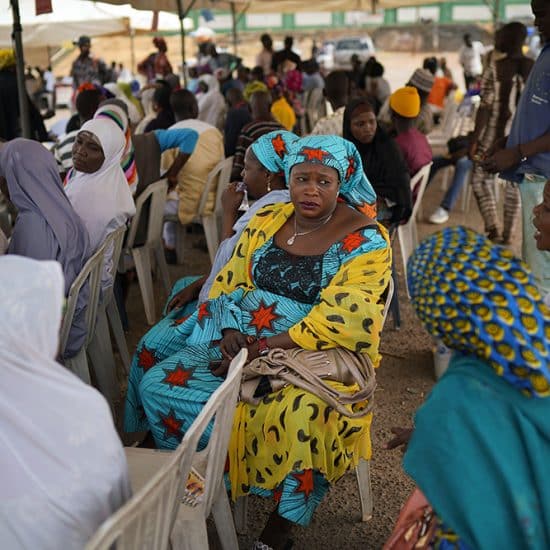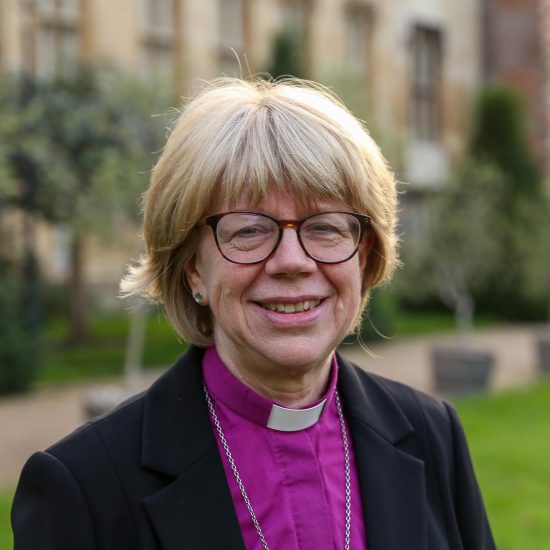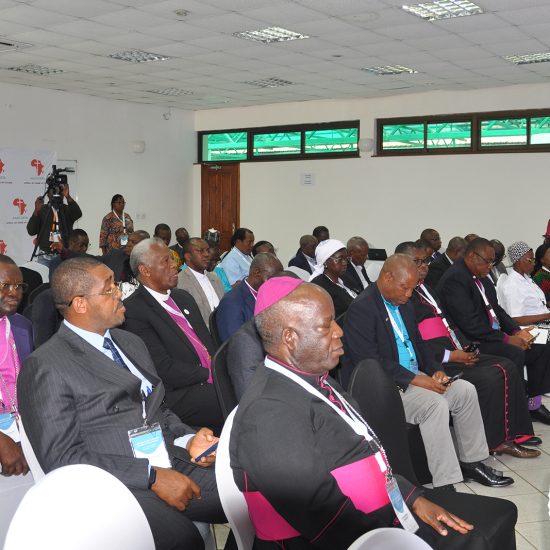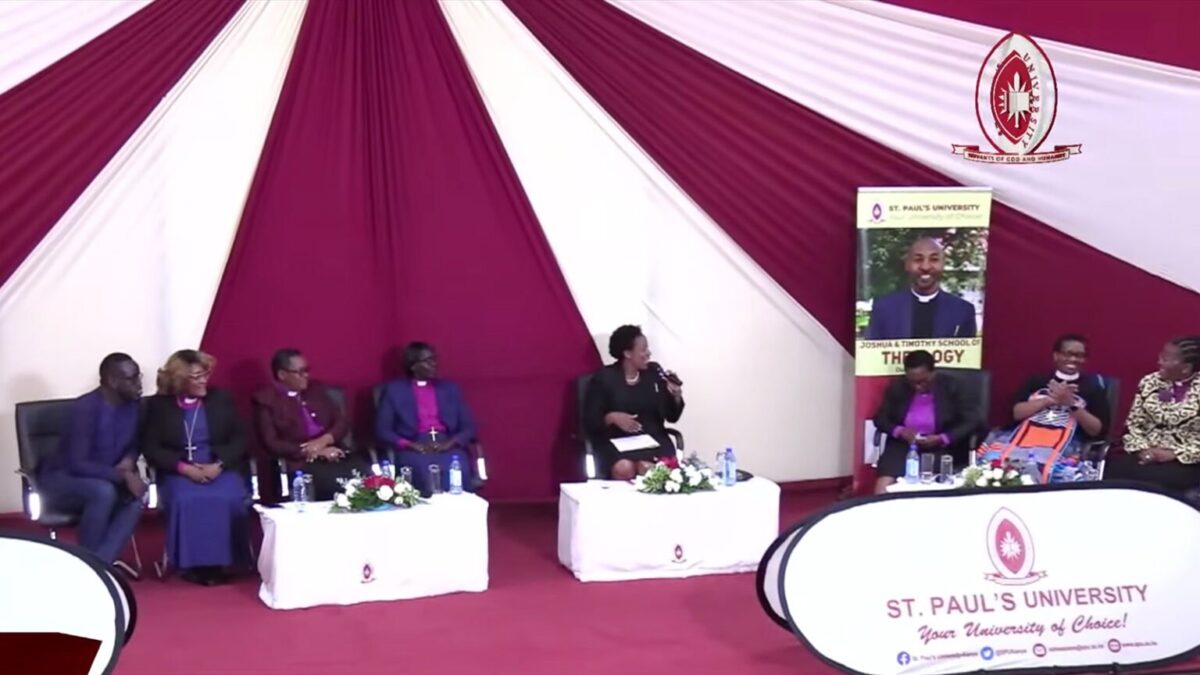
NAIROBI, Kenya (RNS) — Africa’s six female Anglican bishops concluded a historic meeting on Sunday (Jan. 14) by calling for authentic leadership, empowerment, and mentoring for women on the continent.
The weeklong gathering was the first time the six had met as bishops and the first time that Africa has boasted six women in the role. They met at St. Julian’s Centre in Limuru, near Nairobi, where an inaugural Africa Anglican sisters’ journeying retreat was being held. The theme of their meeting was “African Anglican women bishops embarking on a journey of faith: Defying conventions and leading with grace.”
“We are scattered — six of us — in the whole continent,” Bishop Rose Okeno of the Butere diocese, in western Kenya, told Religion News Service today (Jan. 19). “We have never had time to meet just to pray, to know each other and fellowship.”
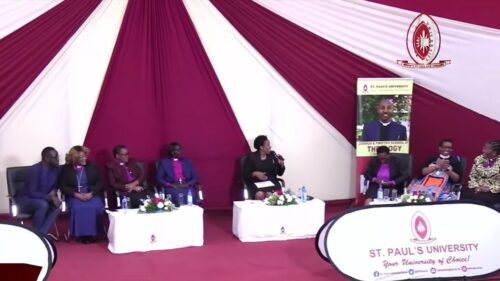
Africa’s six female Anglican bishops participate in a panel discussion at St. Paul’s University in Limuru, Kenya, on Jan. 11, 2024. (Video screen grab)
At the meeting were Okeno, Bishops Vicentia Kgabe and Dalcy Dlamini of the Anglican Church of Southern Africa, Bishop Elizabeth Awut Ngor of the Episcopal Church of South Sudan, Bishop Filomena Tete Estêvão of the Anglican Church of Angola and Mozambique and Bishop Emily Onyango of the Anglican Church of Kenya.
But the six women also took time to speak out on what they called the triple threat of gender-based violence, teenage pregnancy, and HIV/AIDS, saying the Anglican churches in Africa have been silent on these issues affecting many African women.
“We note that the affected are our congregants who could be described as perpetrators and survivors of the aforementioned triple threats and demand of us to intervene,” the leader noted in the communique they issued at the end of their meeting.
They also acknowledged humankind’s responsibility for damage to the environment. “We remain well aware that our actions as human beings have impacted negatively on the climate,” said the bishop.
The Anglican churches of Africa are members of the Anglican Communion, the global body of 46 churches, 14 of which are in Africa, that grew out of the Church of England during Britain’s colonial period. Many of the African provinces, as the individual churches are also called, are also members of GAFCON, a conservative movement within the communion that rejects LGBTQ leadership and limits the role of women in the church.
“They are unique women in leadership in a church that has not accepted women,” said Esther Mombo, a professor of theology at St. Paul’s University, of the six bishops at last week’s meeting.
Africa got its first woman Anglican bishop in 2012, when Ellinah Ntombi Wamukoya was elected bishop of Swaziland, a diocese of the Anglican Church of Southern Africa also known as Eswatini. At the time, only the Methodist Church had ordained a woman as bishop. She was joined that same year by Bishop Margaret Vertue, who was ordained bishop of False Bay in South Africa and is now retired.
The Southern African church ordained its third female bishop when the Rev. Vicentia Refiloe Kgabe became bishop of Lesotho in December of 2021. In the following year, Dlamini replaced Wamukoya as bishop of Swaziland.
In 2016, Awut Ngor became the assistant bishop of Rumbek, in the Episcopal Church of South Sudan. She is the first woman to serve in a church aligned with GAFCON.
In 2021, Onyango, a theologian and historian, became the first female bishop in the Anglican Church of Kenya when she was ordained as an assistant bishop for Bondo, a diocese on the edge of Lake Victoria.
Later that year, Okeno, a long-serving priest, followed as the second female bishop in the Kenyan Anglican church, in the diocese of Butere.
Tete Estêvão was elected the first Anglican woman bishop in the Anglican Church of Angola and Mozambique in July 2023.
The church in Africa has an estimated population of 40 million, with the highest concentrations being in Nigeria and Uganda provinces.
According to Okeno some people thought women were not supposed to serve in such capacities when they misinterpreted the Bible after reading it through cultural lenses.
“This interpretation of the Bible has made many women not to rise up (in leadership),” said Okeno.



